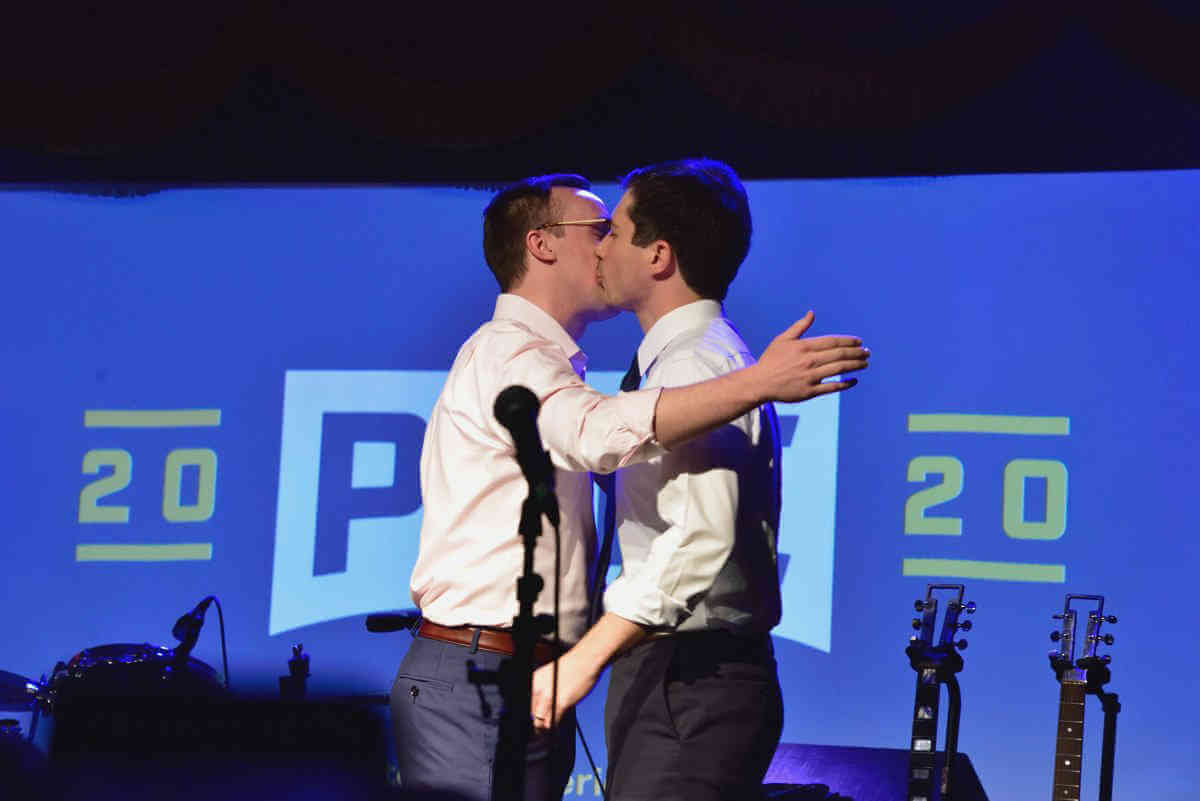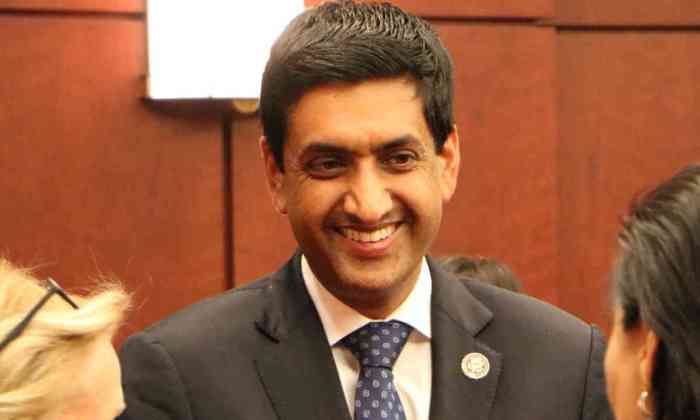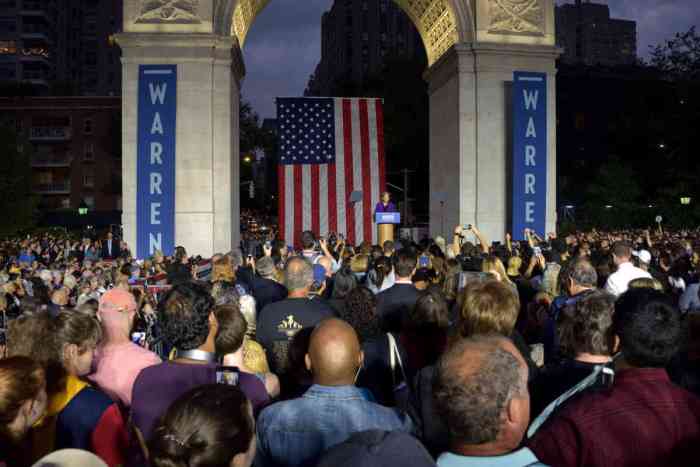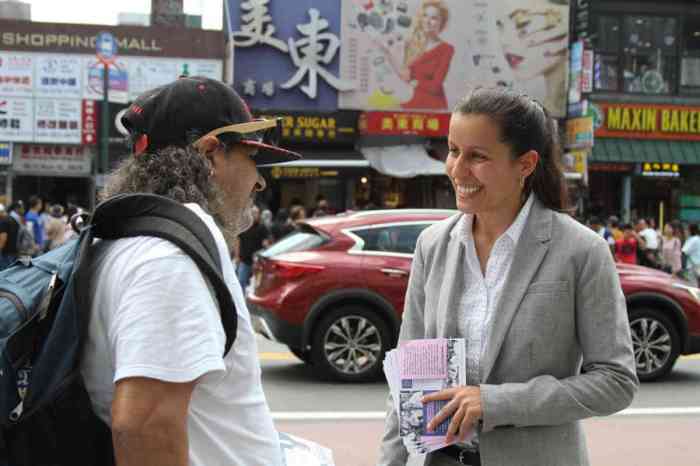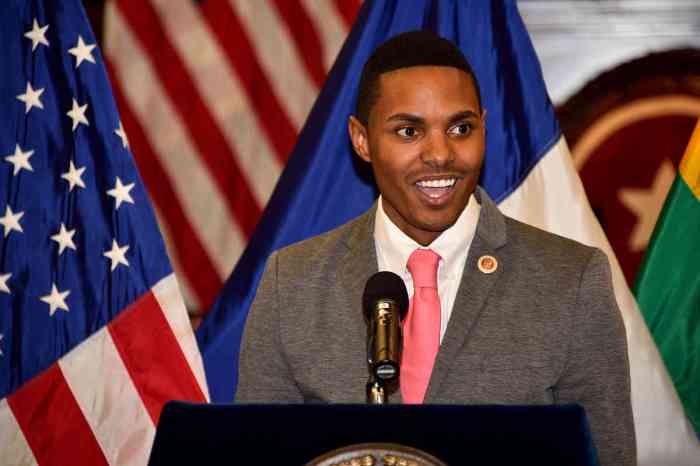I’m not going to vote for Pete Buttigieg. Bernie Sanders is more my style, ideologically and temperamentally. But I’m proud of Mayor Pete.
I’m proud that a gay man can be open about his marriage to a man and still get voters to take him seriously. I’m proud that an ambitious politician can rise in the wake of the LGBTQ movement’s success. Gay people have a potential for leadership that only stereotypes and subterfuge have repressed. Buttigieg’s military career, his embrace of both his sexuality and his faith, and his ability to make people feel that they are being intelligently addressed all shatter tropes about homosexuals that I spent many years fighting against. His politics don’t jibe with mine, but watching him pursue his goals so confidently, I see the world my generation of gay liberationists helped to create. That’s why I’m proud of him.
But lots of young people are riled by his image as well as his agenda. Because he’s their peer, but clean-cut and instinctively trad, he’s the candidate these progressives love to hate. They’re a well-educated tribe, so it’s no surprise that they’ve coined some clever epithets about him. There’s Petey Bourgeoise, a wordplay only those who have studied French and read Marx can parse. There’s Mayo Pete, a wisecrack that may stick because, like his critics’ view of him, it is bland and white. But the most damning dis echoes Elizabeth Warren’s line of attack. Her followers call him Wall Street Pete.
It may be true that, as one bank executive has noted, “he’s the new candidate of the young elite.” But Mike Bloomberg is far better connected to the wealthy, and Joe Biden would like to be. Yet, they’ve escaped the wrath of the woke. Why is Buttigieg such a tempting target? The reason, I believe, is not just his program or his fundraising practices, but the way he expresses his gayness. Some people despise him for being wholesome. Others resent him for being aggressive. Both are responses to his sexuality.
There’s been no reckoning with this reaction, partly because it’s subtle and partly because his critics are pro-gay and sometimes gay themselves. The media haven’t delved into the impact of Buttigieg’s identity, other then noting that it may have something to do with his low numbers among Black voters. In fact, the silence of white liberals is just as telling. It seem like courtesy, but it’s really avoidance, since his gayness is present whether or not it’s addressed. It inflects every exchange with his rivals.
When Biden calls Buttigieg “Mr. President,” with a paternal wink, he’s not just scoffing at a competitor’s youth. Intentionally or not, he’s gliding across the same slick terrain that led Trump to dismiss Buttigieg by wondering how he would deal with Kim Jong-un. Veterans are usually spared such patronizing language, so why is it applied to him? Let me suggest that it has something to do with the word faggot. Where I grew up, the f-word was hurled at any weakling, gay or not. I’m afraid that association with frailty still exists in the recesses of many minds, ready to be tapped.
Though it was an asset for Trump, Buttigieg’s inexperience is a liability for him, because it resonates with a stereotype that has yet to be overcome. When Amy Klobuchar rails about his rise despite a scant political record, suggesting that he benefits from the advantages of being a man, she’s making a valid point, but she’s also ignoring reality. No gay man is fully vested in the perks of masculinity. Even someone as straight-edge as Buttigieg must deal with the disparagement that afflicts all gay people. Soldier or not, he’s still light in the loafers. Too elfin for Air Force One. Any progressive who sees him as the “living, breathing embodiment of white male privilege,” as one Democratic consultant said, is forgetting what it’s like to be gay.
Consider that, though questions about LGBTQ rights are a staple of Democratic debates, Buttigieg’s identity only comes up when he raises it. Imagine that a Black candidate’s race or a woman candidate’s sex were never mentioned. Wouldn’t we think the silence is a cover for discomfort? Why should it be different for a gay man? The fact that his gayness is unmentionable is a clue that it’s a charged subject. When “SNL” did a skit in which a Black family ponders voting for Buttigieg and then breaks out laughing, the joke worked because the whole audience understood the sentiment, even as it was projected onto people of color.
Which brings me to the slurs directed at him from the queer left. Queer as in dissident or proudly different from the norm. This is where the nastiest venom is spit, resulting in heinous allusions to his lack of balls (from a writer for Out) and insults like “Mary Pete.” Let’s be clear: When gay men use femininizing language to describe one of their own, they are usually saying drop the pretense of being butch. But some gay men really are butch, and it doesn’t feel like an act with Buttigieg. So, what this slander actually means is: If you don’t qualify as queer, you aren’t allowed represent us.
I understand the anger at gays whose presentation entitles them — the rewards of normalcy are a bitter reminder of how race- and gender-bound LGBTQ life remains. But electoral politics cuts the edges off movements for change. Barack Obama would not have been president if he’d come on like James Brown. The first members of any minority to succeed on a national scale are those who adopt the dominant code of conduct. Yet, because he’s good at it, Buttigieg must bear the rancor of those who are not. It reminds me of the old motto about left sectarianism: “My worst enemy is the one closest to me.”
I’m not saying you should vote for Buttigieg because he’s gay. I’m saying that his sexuality and its implications must be part of the debate. And he should be grilled about LGBTQ rights. What does he think about issues that matter to his community — and does the community matter to him? It may be that, like many gay assimilationists, he is more conservative about gender than he should be. After all, one of his earliest supporters in the mainstream media was Andrew Sullivan, who has complained that too much attention is paid to drag queens in Pride Parades. Buttigieg could turn out to be such a creature, or he could engage the full diversity of LGBTQ people with all his persuasive skills. Push him to reveal himself; don’t reject him for what he is.
For me, gay liberation has always meant the right to be as you are, whatever that is. A gay man in a business suit is as gay as Billy Porter. Neither would be themselves if the world didn’t recognize their sexuality. Both would be less distinguished if the acknowledgement were withdrawn. That’s what silence does. It creates its own closet, even when you’re out. So, bash Mayor Pete if you don’t like his politics. But, let his persona be. And remember: solidarity is the best response to silence.
Richard Goldstein is the former executive editor of The Village Voice, and the author of “Another Little Piece of My Heart: My Life of Rock and Revolution in the ‘60s.”

